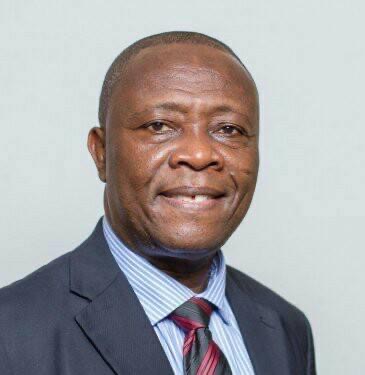Prior to the advent of the western-type of education as we practice today, the development of character (Suban in Akan) was the value around which the child's development revolved.
It defined acceptable moral values that framed children's behaviour towards adults. Acts such as children insulting or using derogatory comments on the elderly was frowned upon and perpetrators punished for purposes of rehabilitation.
The early missionaries who introduced school education to us also emphasized character training. Indeed, their character -indexed curriculum framed the focus of state schools we inherited from the British.
Hence, our post-independence pre-tertiary educational programmes never restricted itself to the child's intellectual (head) and skill (hand) development.
The development of the head and skills in the child's personality development was balanced with character (the heart). Hence, every school child was consciously exposed to acceptable behaviour and values enshrined in a book titled 'courtesy for boys and girls'.
Schools were also empowered to use rehabilitative punishment as character reinforcer. These character-centred education has however been de-emphasized with more prominence given to students' performance in exams.
These notwithstanding, our cultural norms and values still frown upon children making derogatory comments or insulting adults.
In this context, it is appropriate that disciplinary action is taken against eight CHIANA SHS girls who insulted the President.
The disciplinary action (punishment) should however be such that it does not ruin their future.
Dismissing the final year students for their conduct is psychologically traumatizing, destroys their future and deprives them of their fundamental rights to education. It is in this light that I add my voice to those who have called on the Ghana Education Service (GES) to review the dismissal-indexed punishment meted out to the students.
I am not privy to the report of the Committee that allegedly informed the dismissal decision by the Director-General of the GES.
Listening to the obviously remorseful voices of the students and comments made by one parent on TV, however, I note that the students are being given multiple punishment for the same offence. (i) they were suspended from school (ii) authorities of the school caused them to apologise publicly to the President through same video medium and (iii). Dismissal.
I am not a Lawyer but I am of the opinion that it is unfair for the GES to dismiss them irrespective of the suspension and apology.
I am concerned because the GES is a professional agency whose disciplinary decisions affecting adolescent students, such as the eight female students, should be guided by broader psychological considerations and counselling support initiatives to forestall destructive experiences of offending students.
GES must punish the students in love. I pray the GES to do the needful by meting out a punishment that will rehabilitate the students rather than destroying their future.
To forestall recurrence of students making such derogatory comments about adults in leadership, in this case Presidents, we adults also need to set good examples for our younger ones.
For example, in the past we have had situations of adults insulting presidents but who were not punished simply because some legal minds publicly argued that the Laws of Ghana do not make insulting the President an offence in Ghana.
Such a public adult orientation does not provide our younger ones any good role model. It only confuses our youth. If insulting the President is not against the Laws of Ghana, then why dismiss the students? What will be the legal basis of GES' dismissal of the students?
It is also ironical that when students attack the very teachers nurturing them in class sometimes physically, with objects and even endanger their own colleagues, they are only given internal suspension maximum of two weeks for first time offenders.
Yet these students copying wrongly on social media commits such an offence and are dismissed. Where is the fairness?
I pray the GES Director-General to consider the psychological trauma the children have been subjected to by their conduct and thereby review the punishment.
Disciplinary action must rehabilitate young students but not to destroy their future.
The author, Prof. George Kwaku Toku Oduro is a Professor of Educational Leadership.
Latest Stories
-
Managing Prediabetes with the Help of a Dietitian
2 mins -
Joy FM listeners criticise Achiase Commanding Officer’s election comment
22 mins -
Legal Aid Commission employees threaten strike over poor working conditions
25 mins -
Ghana ranked 7th globally as biggest beneficiary of World Bank funding
35 mins -
IMF board to disburse $360m to Ghana in December after third review
39 mins -
Former Bono Regional NPP organiser donates 13 motorbikes to 12 constituencies
45 mins -
Securities industry: Assets under management estimated at GH¢81.7bn in quarter 3, 2024
50 mins -
Gold Fields Ghana Foundation challenges graduates to maximise benefits of community apprenticeship programme
2 hours -
GBC accuses Deputy Information Minister Sylvester Tetteh of demolishing its bungalow illegally
3 hours -
Boost for education as government commissions 80 projects
3 hours -
NAPO commissions library to honour Atta-Mills’ memory
3 hours -
OmniBSIC Bank champions health and wellness with thriving community walk
3 hours -
Kora Wearables unveils Neo: The Ultimate Smartwatch for Ghana’s tech-savvy and health-conscious users
3 hours -
NDC supports Dampare’s ‘no guns at polling stations’ directive
3 hours -
Police officer interdicted after video of assault goes viral
3 hours

